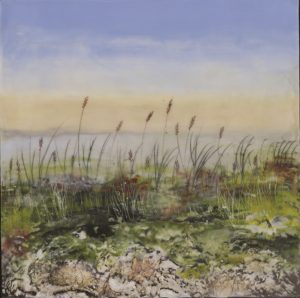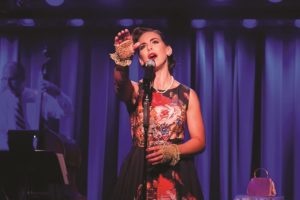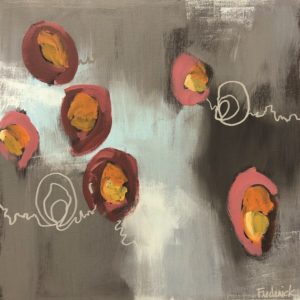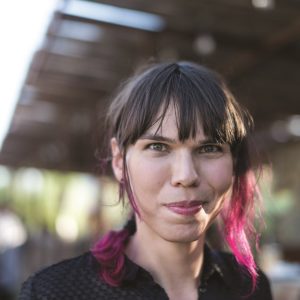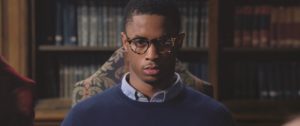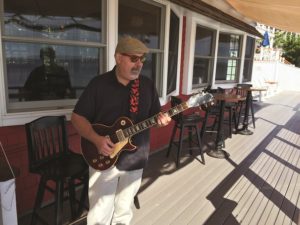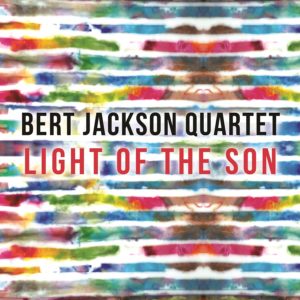Eleanor Dubinsky is a polyglot in every sense of the word. She sings in four languages: French, Spanish, Portuguese, and English. She plays the cello and the guitar. She’s lived in Argentina, France, the Czech Republic, Portugal, and Cape Verde. And her music draws from several different musical traditions inspired by her life and travels.
During the coronavirus pandemic, she has been sheltering in place in Truro. She recently performed at Payomet Performing Arts Center’s streaming Tiny Tent with Dario Acosta Teich. And she has been live-streaming a series of concerts, titled “Jazz and More,” every Sunday evening, with proceeds benefitting a different charity each week. (Enjoy the full experience at jazzandmoreconcerts.com.)
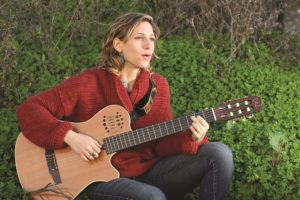
Dubinsky’s life has been as eclectic as her music. She grew up, for the most part, in St. Louis, Mo., but has been coming to the Cape with her family since she was an infant. She is said to have taken her first steps on a whale watch boat, and she learned to swim in Long Pond in Wellfleet.
Dubinsky started playing cello when she was three, and her interest in dance and musical theater began at a young age. Even so, she “did not have a big plan to be an artist,” she says. She went to Brown University and studied the philosophy of education.
“I had this idea, from the beginning, even, that if you were going to be making art, you had to be making it about something,” Dubinsky says. “I was always quite impassioned by social justice and equity. St. Louis is a pretty segregated city, and it has a lot of history with civil rights.”
During her junior year at Brown, she studied in Prague in a program on art and social change. That was when she began to realize she primarily wanted to be a practicing artist. “I was singing in a band, and dancing in a contemporary dance company there,” Dubinsky says. “When I had a choice of how to spend my time, that’s how I wanted to spend it.
“Being a practicing artist is very different than learning about the theory,” she continues. “It is a whole other world. Both are so important, but it can feel like there is not enough time in the day to be both thinking around things and honing your craft enough to express what you have to say.”
She moved to New York, at first to pursue a dance career, but craved more immediate audience feedback. She learned the guitar, started doing gigs, and, in 2011, decided to record her first album, Touch the Sky, instead of going to graduate school. Her most recent album, Soft Spot of My Heart, came out in 2018.
Dubinsky believes that music can be a vehicle for changing society. “In my experience, the arts are a place where people are moved emotionally and viscerally, and I think that’s how a lot of people shift how they see things — through hearing someone else’s story,” she says. She has partnered with several different nonprofits, including Feel the Music! and ArteAmor, which bring music globally to those affected by trauma, loss, and abuse, and Montefiore Medical Center’s children’s health care initiative, Terra Firma.
“My music has been classified over time, surprisingly, as world music,” she says. “I write music from my life experience, and the sounds I am most drawn to are West African or Latin rhythms.” Rhythms aside, Dubinsky makes clear that she is not trying to write African or Latin music. “I’m very conscious of naming the histories that we are performing,” she says. Her band mates are from Cuba, Brazil, and the U.S.
She is certain of the importance of music now more than ever. “The history of protest songs is very powerful,” she says. “If someone could write a song that was promoted enough and really resonated with the current moment, I think it could be hugely important. We could use a couple of anthems.”
